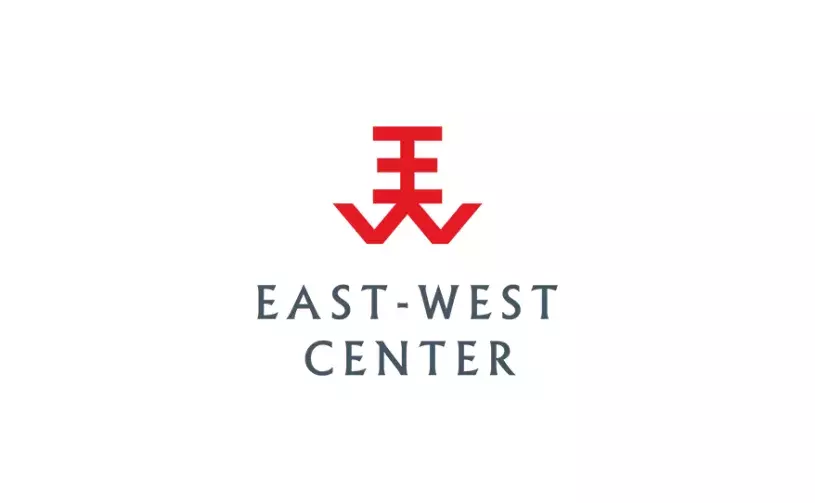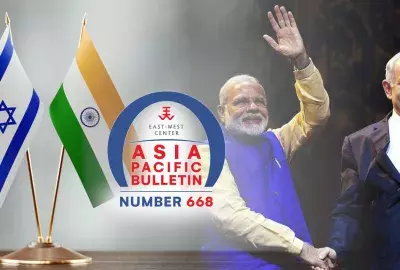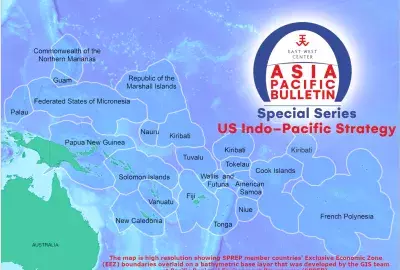Error message

|
Kristin Wilson and Jackie F. Steele, explain that: “Under the new administration, the United States and Japan have ample opportunity to reinvigorate democratic advancement, especially on gender and racial justice.” |
The U.S.-Japan alliance is viewed as a cornerstone of stability, the rule of law, and promotion of democracy in the Indo-Pacific. The new U.S. administration presents an important opportunity to strengthen and refocus relationships and initiatives in the region as they aim to tackle the challenges of an assertive China. In the context of globalization and transnational social justice movements, there is no longer such a clear delineation between the politics of domestic issues, such as political underrepresentation and minority rights, and those affecting foreign policy. Under the new administration, the United States and Japan have ample opportunity to reinvigorate democratic advancement, especially on gender and racial justice. To this end, civil society and social movement groups play a key role in demonstrating why only democracy can ensure the sustainability of representative institutions, cohesive societies, and inclusive economies driven by innovation and opportunity.
Historically, these groups have been essential to promoting democratization within the alliance and in the Indo-Pacific region. On issues of gender justice, transnational feminist and human rights networks brought global attention to the comfort women issue starting in the 1980s. Linkages between groups in the United States, Korea, and Japan have strengthed calls for justice for the comfort women and highlighted the delegitimacy of previous backroom deals on the issue—such as the 1965 treaty with then South Korean dictator, Park Chung-hee, and the private negotiations between PM Abe and President Park in 2015. These movements for social justice underscored the growing role played by transnational civil society in international affairs and they raised the bar on the level of transparency and meaningful inclusion necessary to resolve such deep-rooted conflicts.
Today, there is tremendous opportunity for the U.S.-Japan alliance under the new Biden-Harris administration to more effectively promote democratic prosperity at home and in the Indo-Pacific. Indeed, numerous linkages between organizations in the United States, Japan, and globally, including government groups, offer important bilateral platforms for citizens to bring forth expertise that will enhance mutual democratization efforts. Civil society actors and transnational solidarity networks will continue to play a more significant role in future U.S.-Japan cooperation regarding substantive policy changes that bring about greater equity and inclusion.
Recovery from the coronavirus pandemic will require active participation from civil society and potential forums such as the D10 or Summit of Democracies would serve as an important platform for the U.S.-Japan alliance to discuss best practices on rebuilding democratic and economic resilience by investing in multicultural equity, social capital, and political power-sharing with core demographic groups. Evidence-based legal approaches, such as intersectionality, seek responsive public policy solutions that address the precarity of individuals experiencing compound marginalization. Women and minority social groups in G7 countries, notably women of color in the United States, are disproportionately engaged in precarious work contracts and have lost more jobs than other demographics.
These lived realities must inform the policy solutions chosen, as evidenced in the Canadian approach to disaggregated data collection, policy dialogues that include social movement stakeholders, and intersectional analysis of the impacts of COVID19. More rational, inclusive, and participatory policy-making processes from the United States and Japan will ensure equitable prosperity and more rapid pandemic recovery—and will further deepen the democratic credibility of the United States and Japan in the Indo-Pacific, as well as in the eyes of their own populations.
Within their own societies, the U.S.-Japan alliance must re-commit to diversity and inclusion as a cornerstone of peaceful and prosperous statecraft and demonstrate responsiveness to the voices of global-minded groups demanding political accountability. This includes issues of gender-based violence and sexual harassment, where global solidarity networks, such as the #MeToo effect in the United States, Korea and the #Kutoo iteration in Japan, have pushed the issue to the forefront of the policy agenda. On matters of racial justice, the United States must contend with its own weakened domestic track record involving racial discrimination and the reactionary force used against Black Lives Matter (BLM) activists at home. With global reverberations of BLM, including in Japan, the movement has constructively opened up and widened the conversations about discrimination, racial identity and how to build a more inclusive Reiwa Japan.
The Biden cabinet and foreign policy platform both sent strong signals for an intersectional, gender balanced, and truly representative approach to institutional diversity. It is an inspiring renewal of America’s commitment to overcoming the legacy of structural racism and to uplifting the rights of women and girls at home and around the world. Hopefully this will inspire Japan’s efforts to use more intersectional, evidence-based policies for gender equality, and notably, to adopt genuine compliance mechanisms that demand accountability and consistent, measurable performance over time.
Japan curiously lags behind all other Asian countries on the Gender Gap Index, which strains its reputation, despite its status as a leader of democratic freedom in Asia. Japan also ranks low in the IMD world talent ranking and has been questioned on its inequitable re-entry guidelines affecting foreign residents and business owners during the pandemic. The misogynist remarks by former PM Mori, head of the Tokyo Olympics, were rebuked by the digital democracy campaign led by one young Japanese woman, showing the domestic to transnational solidarity movement’s ability to use social media to demand political accountability and ethical leadership.
On the international stage, the United States and Japan can incorporate transnational feminist coalitions and promote principles of equity in multilateral agreements and strategies, such as U.S. ratification of CEDAW, implementation of their Women Peace and Security (WPS) actions plans, and elevation of women’s leadership within disaster risk reduction. As a cornerstone of the Free and Open Indo Pacific (FOIP) strategy, which signals the role of civil society and democratic governance, the alliance can demonstrate commitment to sustainable and equitable development in the Indo-Pacific. Mutual accountability among these two global powers and a move beyond the view of women and minorities as helpless victims will ensure they are respected as authoritative agents of democratic progress whose leadership is essential in policy areas such as economic sustainability, entrepreneurship, and crisis governance.
To move their alliance forward, the United States and Japan should recommit to role modeling inclusive self-government at home and fostering closer foreign relations with other democracies. By aligning commitments on social justice, gender equality, diversity, and the creative use of statecraft to protect minorities and build a prosperous modeling of democracy, the U.S.-Japan Alliance can distinguish its leadership model from the Chinese alternative. Both countries are at a historic crossroads in their experiment with democracy, yet they have the power to attract other Indo-Pacific nations into a more economically and democratically inclusive community of global socio-economic cooperation.
|
Kristin Wilson and Jackie F. Steele, explain that: “Under the new administration, the United States and Japan have ample opportunity to reinvigorate democratic advancement, especially on gender and racial justice.” |
The U.S.-Japan alliance is viewed as a cornerstone of stability, the rule of law, and promotion of democracy in the Indo-Pacific. The new U.S. administration presents an important opportunity to strengthen and refocus relationships and initiatives in the region as they aim to tackle the challenges of an assertive China. In the context of globalization and transnational social justice movements, there is no longer such a clear delineation between the politics of domestic issues, such as political underrepresentation and minority rights, and those affecting foreign policy. Under the new administration, the United States and Japan have ample opportunity to reinvigorate democratic advancement, especially on gender and racial justice. To this end, civil society and social movement groups play a key role in demonstrating why only democracy can ensure the sustainability of representative institutions, cohesive societies, and inclusive economies driven by innovation and opportunity.
Historically, these groups have been essential to promoting democratization within the alliance and in the Indo-Pacific region. On issues of gender justice, transnational feminist and human rights networks brought global attention to the comfort women issue starting in the 1980s. Linkages between groups in the United States, Korea, and Japan have strengthed calls for justice for the comfort women and highlighted the delegitimacy of previous backroom deals on the issue—such as the 1965 treaty with then South Korean dictator, Park Chung-hee, and the private negotiations between PM Abe and President Park in 2015. These movements for social justice underscored the growing role played by transnational civil society in international affairs and they raised the bar on the level of transparency and meaningful inclusion necessary to resolve such deep-rooted conflicts.
Today, there is tremendous opportunity for the U.S.-Japan alliance under the new Biden-Harris administration to more effectively promote democratic prosperity at home and in the Indo-Pacific. Indeed, numerous linkages between organizations in the United States, Japan, and globally, including government groups, offer important bilateral platforms for citizens to bring forth expertise that will enhance mutual democratization efforts. Civil society actors and transnational solidarity networks will continue to play a more significant role in future U.S.-Japan cooperation regarding substantive policy changes that bring about greater equity and inclusion.
Recovery from the coronavirus pandemic will require active participation from civil society and potential forums such as the D10 or Summit of Democracies would serve as an important platform for the U.S.-Japan alliance to discuss best practices on rebuilding democratic and economic resilience by investing in multicultural equity, social capital, and political power-sharing with core demographic groups. Evidence-based legal approaches, such as intersectionality, seek responsive public policy solutions that address the precarity of individuals experiencing compound marginalization. Women and minority social groups in G7 countries, notably women of color in the United States, are disproportionately engaged in precarious work contracts and have lost more jobs than other demographics.
These lived realities must inform the policy solutions chosen, as evidenced in the Canadian approach to disaggregated data collection, policy dialogues that include social movement stakeholders, and intersectional analysis of the impacts of COVID19. More rational, inclusive, and participatory policy-making processes from the United States and Japan will ensure equitable prosperity and more rapid pandemic recovery—and will further deepen the democratic credibility of the United States and Japan in the Indo-Pacific, as well as in the eyes of their own populations.
Within their own societies, the U.S.-Japan alliance must re-commit to diversity and inclusion as a cornerstone of peaceful and prosperous statecraft and demonstrate responsiveness to the voices of global-minded groups demanding political accountability. This includes issues of gender-based violence and sexual harassment, where global solidarity networks, such as the #MeToo effect in the United States, Korea and the #Kutoo iteration in Japan, have pushed the issue to the forefront of the policy agenda. On matters of racial justice, the United States must contend with its own weakened domestic track record involving racial discrimination and the reactionary force used against Black Lives Matter (BLM) activists at home. With global reverberations of BLM, including in Japan, the movement has constructively opened up and widened the conversations about discrimination, racial identity and how to build a more inclusive Reiwa Japan.
The Biden cabinet and foreign policy platform both sent strong signals for an intersectional, gender balanced, and truly representative approach to institutional diversity. It is an inspiring renewal of America’s commitment to overcoming the legacy of structural racism and to uplifting the rights of women and girls at home and around the world. Hopefully this will inspire Japan’s efforts to use more intersectional, evidence-based policies for gender equality, and notably, to adopt genuine compliance mechanisms that demand accountability and consistent, measurable performance over time.
Japan curiously lags behind all other Asian countries on the Gender Gap Index, which strains its reputation, despite its status as a leader of democratic freedom in Asia. Japan also ranks low in the IMD world talent ranking and has been questioned on its inequitable re-entry guidelines affecting foreign residents and business owners during the pandemic. The misogynist remarks by former PM Mori, head of the Tokyo Olympics, were rebuked by the digital democracy campaign led by one young Japanese woman, showing the domestic to transnational solidarity movement’s ability to use social media to demand political accountability and ethical leadership.
On the international stage, the United States and Japan can incorporate transnational feminist coalitions and promote principles of equity in multilateral agreements and strategies, such as U.S. ratification of CEDAW, implementation of their Women Peace and Security (WPS) actions plans, and elevation of women’s leadership within disaster risk reduction. As a cornerstone of the Free and Open Indo Pacific (FOIP) strategy, which signals the role of civil society and democratic governance, the alliance can demonstrate commitment to sustainable and equitable development in the Indo-Pacific. Mutual accountability among these two global powers and a move beyond the view of women and minorities as helpless victims will ensure they are respected as authoritative agents of democratic progress whose leadership is essential in policy areas such as economic sustainability, entrepreneurship, and crisis governance.
To move their alliance forward, the United States and Japan should recommit to role modeling inclusive self-government at home and fostering closer foreign relations with other democracies. By aligning commitments on social justice, gender equality, diversity, and the creative use of statecraft to protect minorities and build a prosperous modeling of democracy, the U.S.-Japan Alliance can distinguish its leadership model from the Chinese alternative. Both countries are at a historic crossroads in their experiment with democracy, yet they have the power to attract other Indo-Pacific nations into a more economically and democratically inclusive community of global socio-economic cooperation.







